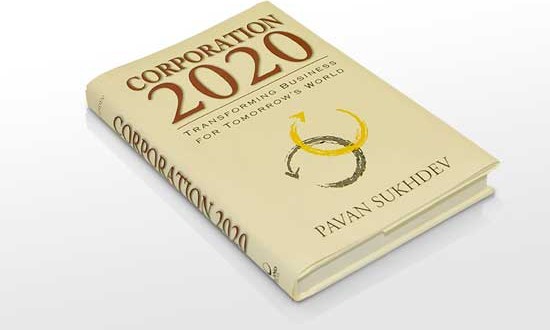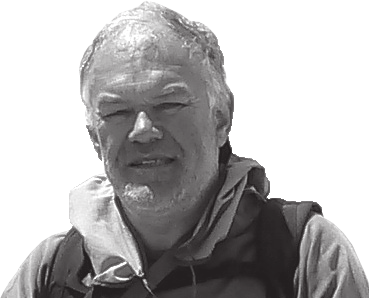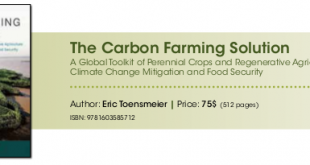Really good books can only claim a justification for publication when their authors explore topics that seem to us to be irrefutable wisdom set in stone. Until recently, Pavan Sukhdev worked as a top manager at a European bank. Then he took some time out to focus on ecological issues within economics at the UN. Does he write anything really new in Corporation 2020? Yes.
 The book rightly asks the question why the legal form the limited company excludes comprehensive, complete liability. Yes, why, when every person is responsible for their actions in accordance with the originator principle: parents are responsible for their children, adults for their personal loans, accidents and everything else they get up to – except for bankers and politicians with governmental responsibility, and limited companies too. Why can joint-stock companies in Indonesia have palm oil produced on plantations against all common sense (Unilever, Procter & Gamble, Nestlé etc.) for which the rain forest was previously chopped down? Who pays the external (externalised) costs for the destruction and the irretrievable loss of the forest and its ecological and social costs? Why can a company simply dig gold, copper, coal, oil etc. out of the ground and earn money that way? The example of BP and the oil catastrophe in the Gulf of Mexiko, in Prudhoe Bay in Alaska etc. How does that work and why? In his book, Pavan Sukhdev asks fundamental questions about this way of doing business, according to the principle After me the flood (shifting the costs on to nature). Everything is tested and analysed. He calls for a comprehensive reform of company law involving the inclusion of externalised costs (consumption of nature) in balance sheets and a new tax law in which the state levies taxes on resource consumption and emissions. A forward-looking book!
The book rightly asks the question why the legal form the limited company excludes comprehensive, complete liability. Yes, why, when every person is responsible for their actions in accordance with the originator principle: parents are responsible for their children, adults for their personal loans, accidents and everything else they get up to – except for bankers and politicians with governmental responsibility, and limited companies too. Why can joint-stock companies in Indonesia have palm oil produced on plantations against all common sense (Unilever, Procter & Gamble, Nestlé etc.) for which the rain forest was previously chopped down? Who pays the external (externalised) costs for the destruction and the irretrievable loss of the forest and its ecological and social costs? Why can a company simply dig gold, copper, coal, oil etc. out of the ground and earn money that way? The example of BP and the oil catastrophe in the Gulf of Mexiko, in Prudhoe Bay in Alaska etc. How does that work and why? In his book, Pavan Sukhdev asks fundamental questions about this way of doing business, according to the principle After me the flood (shifting the costs on to nature). Everything is tested and analysed. He calls for a comprehensive reform of company law involving the inclusion of externalised costs (consumption of nature) in balance sheets and a new tax law in which the state levies taxes on resource consumption and emissions. A forward-looking book!
http://www.oekom.de/nc/buecher/gesamtprogramm/buch/corporation-2020.html
 Eco123 Revista da Economia e Ecologia
Eco123 Revista da Economia e Ecologia



